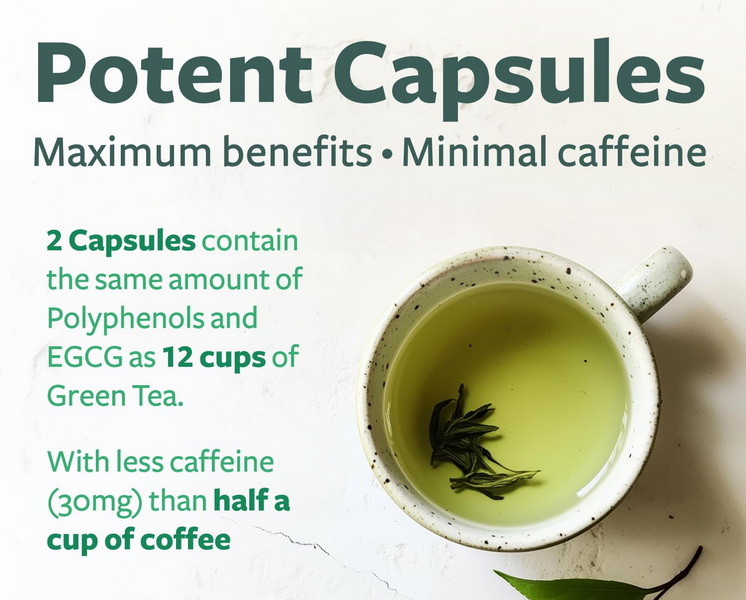Content Menu
● Understanding Green Tea Extract
● Potential Side Effects of Excessive Green Tea Extract
● Who Should Avoid Green Tea Extract?
● Recommended Dosage
● Choosing Quality Green Tea Extract
● Lifestyle Considerations
● Additional Benefits of Green Tea Extract
>> 1. Weight Management
>> 2. Cardiovascular Health
>> 3. Cancer Prevention
>> 4. Improved Mental Clarity
● The Science Behind Green Tea Extract
● Cultural Significance
● Conclusion
● FAQs
>> 1. What are the symptoms of green tea extract overdose?
>> 2. How much green tea extract is considered safe?
>> 3. Can green tea extract affect my liver?
>> 4. Is it safe for everyone to take green tea extract?
>> 5. What should I do if I experience side effects from green tea extract?
● Citations:
Green tea extract (GTE) has gained popularity as a health supplement due to its numerous potential benefits, including weight loss, improved brain function, and antioxidant properties. However, like many supplements, it can also have adverse effects, especially when consumed in excessive amounts. This article explores the potential risks associated with high doses of green tea extract, the symptoms of overdose, and guidelines for safe consumption.

Understanding Green Tea Extract
Green tea extract is derived from the leaves of the Camellia sinensis plant and contains high concentrations of polyphenols, particularly catechins such as epigallocatechin gallate (EGCG). These compounds are credited with various health benefits, including:
- Weight Loss Support: GTE is often marketed as a weight loss aid due to its ability to enhance fat oxidation and improve metabolic rate.
- Antioxidant Effects: The polyphenols in green tea act as powerful antioxidants, helping to neutralize free radicals and reduce oxidative stress in the body.
- Improved Heart Health: Regular consumption of green tea has been linked to lower cholesterol levels and improved cardiovascular health.
- Enhanced Brain Function: Some studies suggest that GTE may improve cognitive function and reduce the risk of neurodegenerative diseases.
Despite these benefits, excessive intake can lead to serious health issues.
Potential Side Effects of Excessive Green Tea Extract
1. Gastrointestinal Issues
High doses of green tea extract can cause gastrointestinal discomfort, including:
- Nausea
- Vomiting
- Diarrhea
- Abdominal pain
These symptoms are often linked to the tannins in green tea, which can irritate the stomach lining and increase acidity. To mitigate these effects, it is advisable to take GTE with food.
2. Liver Damage
One of the most concerning effects of excessive green tea extract consumption is liver toxicity. Reports indicate that high doses may lead to liver damage or dysfunction, characterized by symptoms such as:
- Jaundice (yellowing of the skin and eyes)
- Nausea
- Abdominal pain
Individuals taking GTE supplements should monitor liver function regularly. In severe cases, liver damage can lead to acute liver failure, necessitating medical intervention.
3. Caffeine-Related Effects
Green tea extract contains caffeine, which can lead to side effects such as:
- Insomnia
- Anxiety
- Increased heart rate
- Headaches
Those sensitive to caffeine should be particularly cautious. It's important to consider other sources of caffeine in your diet when taking GTE.
4. Nutrient Absorption Issues
Excessive intake of green tea extract can inhibit the absorption of certain nutrients, particularly calcium. This could potentially lead to bone density issues over time. Maintaining a balanced diet rich in essential vitamins and minerals is crucial for overall health.
5. Risk of Bleeding Disorders
Some studies suggest that compounds in green tea may affect blood clotting. Individuals with bleeding disorders or those taking anticoagulant medications should consult a healthcare provider before using GTE.

Who Should Avoid Green Tea Extract?
While many people can safely enjoy green tea extract, certain groups should be cautious:
- Pregnant and Nursing Women: High doses of caffeine and other compounds in GTE may not be safe during pregnancy or breastfeeding.
- Individuals with Liver Disease: Those with pre-existing liver conditions should avoid GTE due to its potential hepatotoxicity.
- People on Medications: If you are taking medications for blood pressure, anticoagulants, or other conditions, consult your doctor before adding GTE to your regimen.
Recommended Dosage
To enjoy the benefits of green tea extract while minimizing risks, moderation is key. The general recommendations for safe consumption include:
- Limit intake to no more than 400 mg of EGCG per day.
- If consuming green tea as a beverage, aim for 3-4 cups daily.
- Always consult a healthcare professional before starting any new supplement regimen.
Choosing Quality Green Tea Extract
When selecting a green tea extract supplement, consider the following factors:
1. Purity: Look for products that are free from additives and fillers.
2. Standardization: Choose extracts that specify the percentage of EGCG or total catechins.
3. Reputation: Select brands that have a good reputation for quality and transparency regarding their sourcing and manufacturing processes.
Lifestyle Considerations
In addition to monitoring your intake of green tea extract, adopting a healthy lifestyle can enhance its benefits:
- Balanced Diet: Incorporate a variety of fruits, vegetables, whole grains, lean proteins, and healthy fats into your diet.
- Regular Exercise: Engage in regular physical activity to support weight management and overall health.
- Hydration: Stay well-hydrated by drinking plenty of water throughout the day.
Additional Benefits of Green Tea Extract
1. Weight Management
Green tea extract is often included in weight loss supplements due to its ability to increase fat oxidation during exercise. Studies have shown that EGCG can enhance metabolic rate by promoting thermogenesis—the process by which your body generates heat by burning calories.
2. Cardiovascular Health
Research indicates that regular consumption of green tea may help lower LDL cholesterol levels while increasing HDL cholesterol levels (the "good" cholesterol). This balance contributes positively to heart health by reducing the risk factors associated with heart disease.
3. Cancer Prevention
Some studies suggest that the antioxidants found in green tea may play a role in cancer prevention by inhibiting tumor growth and reducing inflammation within the body. While more research is needed in this area, preliminary findings are promising.
4. Improved Mental Clarity
The combination of caffeine and L-theanine (an amino acid found in green tea) may enhance brain function by improving attention span and cognitive performance while reducing anxiety levels.
The Science Behind Green Tea Extract
Understanding how green tea extract works at a molecular level helps clarify its benefits:
- Antioxidant Activity: The catechins in GTE scavenge free radicals—unstable molecules that can cause cellular damage—thereby protecting cells from oxidative stress.
- Anti-inflammatory Properties: Chronic inflammation is linked with various diseases; GTE's anti-inflammatory properties may help reduce this risk.
Cultural Significance
Green tea has been consumed for centuries in various cultures around the world—especially in Asia—where it holds significant cultural importance not just as a beverage but also as part of traditional medicine practices.
Conclusion
While green tea extract offers numerous health benefits, excessive consumption can lead to significant adverse effects, particularly concerning liver health and gastrointestinal discomfort. It is crucial to adhere to recommended dosages and consult with healthcare professionals if you have underlying health conditions or are taking medications.
In summary, while green tea extract presents numerous health benefits ranging from weight management to enhanced brain function, it is essential to consume it responsibly. Awareness about potential side effects—especially when taken in excess—can help individuals make informed decisions regarding their health supplements. Always prioritize quality products and consider lifestyle factors that complement your supplement intake for optimal results.
As with any supplement or dietary change, individual responses may vary based on personal health conditions and lifestyle choices. Consulting with healthcare professionals ensures you receive personalized advice tailored specifically for you.

FAQs
1. What are the symptoms of green tea extract overdose?
Common symptoms include nausea, vomiting, abdominal pain, diarrhea, and signs of liver damage like jaundice.
2. How much green tea extract is considered safe?
Moderate consumption is generally considered safe; up to 400 mg of EGCG per day or 3-4 cups of brewed green tea.
3. Can green tea extract affect my liver?
Yes, excessive intake has been linked to liver toxicity; monitoring liver function is advisable if consuming high doses.
4. Is it safe for everyone to take green tea extract?
Not necessarily; individuals with caffeine sensitivity or bleeding disorders should exercise caution and consult a healthcare provider.
5. What should I do if I experience side effects from green tea extract?
If you experience any adverse effects, discontinue use immediately and consult a healthcare professional.
Citations:
[1] https://www.urmc.rochester.edu/encyclopedia/content?contenttypeid=19&contentid=greenteaextract
[2] https://senchateabar.com/blogs/blog/green-tea-side-effects
[3] https://www.healthline.com/nutrition/10-benefits-of-green-tea-extract
[4] https://www.vumc.org/poison-control/toxicology-question-week/march-12-2021-what-are-adverse-effects-green-tea-extract
[5] https://www.webmd.com/vitamins/ai/ingredientmono-960/green-tea
[6] https://www.medicalnewstoday.com/articles/269538
[7] https://www.mountsinai.org/health-library/herb/green-tea






























